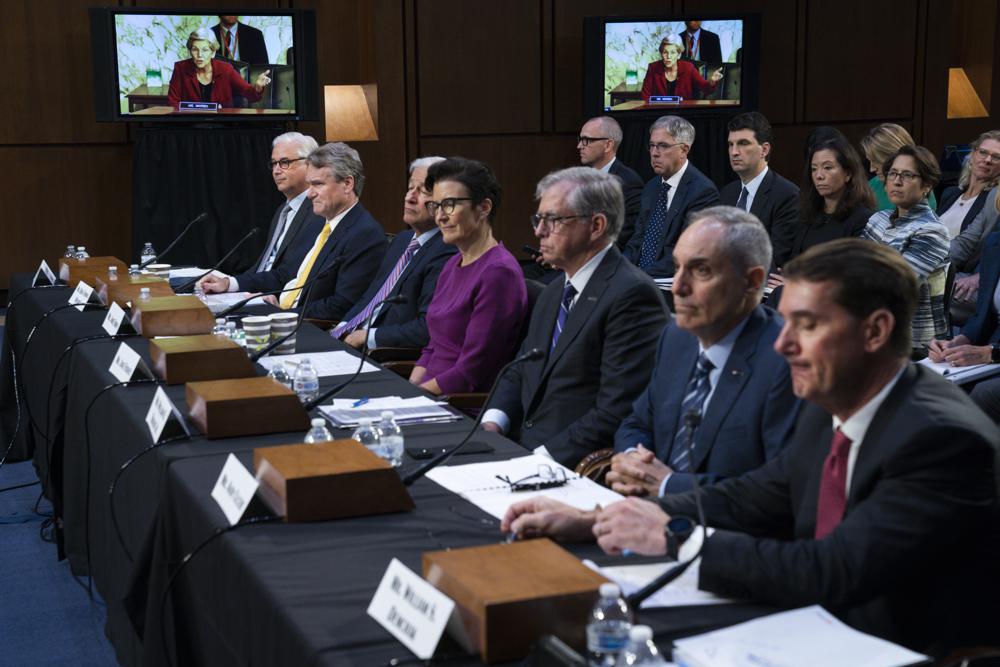Incidents of fraud and scams are occurring more often on the popular peer-to-peer payment service Zelle, according to a report coming out Monday from the office of Sen. Elizabeth Warren, giving the public its first glimpse into the growing problems at Zelle.
The report obtained by The Associated Press also found that the large banks who partly own Zelle have been reluctant to compensate customers who have been victims of fraud or scams. For instance, less than half of the money customers reported being sent via Zelle without authorization was being reimbursed.
Warren, D-Massachusetts, a long-time critic of the big banks, requested data on fraud and scams on Zelle from seven banks in April. Four banks complied. In the report, the four banks reported 192,878 cases worth collectively $213.8 million in 2021 and the first half of 2022 where a customer claimed they had been fraudulently tricked into making a payment. In only roughly 3,500 cases did those banks reimburse the customer, the report found.
Further, in the cases where it’s clear funds had been taken out of customers’ account without authorization, only 47% of those dollars were ever reimbursed.
The data for individual banks shows the increase in fraud and scams. PNC Bank had 8,848 cases on Zelle in 2020, and is on pace to have roughly 12,300 cases this year. US Bank had 14,886 cases in 2020 and had 27,702 cases in 2021. Truist had 9,455 cases of fraud and scams on Zelle in 2020, which ballooned to 22,045 last year.
Since being launched in June 2017, Zelle has become a popular way for bank customers to send money to friends and family. Almost $500 billion in funds were sent via Zelle in 2021, according to Early Warning Systems, the company who operates Zelle.
Zelle is the banking industry’s answer to the growing popularity of peer-to-peer payment services like PayPal, Venmo and the Cash App. The service allows a bank customer to instantaneously send money to a person via their email or phone number, and it will go from one bank account to another. But the service has also grown more popular with scammers and criminals. Once money is sent via Zelle, it requires a bank’s intervention to attempt to get that money back.
Banks are required under the Electronic Fund Transfer Act to repay customers when funds are illegally taken out of their account without authorization. Banks have argued that in cases of fraud — meaning a customer’s account becomes compromised somehow and they send an unauthorized payment — they do reimburse customers. Banks are more reluctant to reimburse customers claiming to be scammed, arguing that customers would claim being scammed more often and it would be hard to tell whether the customer is telling the truth.
Warren made fireworks at a Congressional at month hearing involving the CEOs of the big Wall Street banks that use and partly own Zelle, where she pushed each of the CEOs to release fraud and scam incident data at their banks. The seven are: JPMorgan Chase, Wells Fargo, PNC Financial, Truist, Bank of America and U.S. Bank.
The hearing featured a scene where Jamie Dimon, the CEO of JPMorgan Chase, was apologizing to Warren for not getting her the data she requested and said that she would have it at the end of that day.
Warren’s office says ultimately JPMorgan’s data on Zelle did not provide the data they were looking for, so data from JPMorgan is not included in the report. The other bank that did not provide data to Warren’s office was Wells Fargo. JPMorgan and Early Warning System have not returned a request for comment.
(AP)











